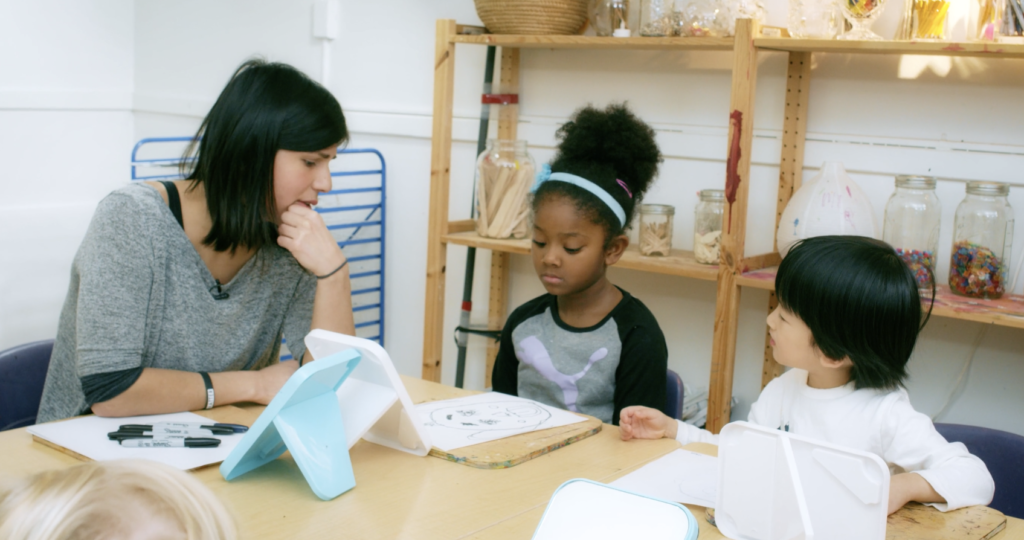A Film by Debbie LeeKeenan, John Nimmo, Filiz Efe McKinney to create a more just and equitable society.
As I interact with directors and educators across our schools, I’m heartened to hear how people are continuing to use a lens of inclusion, equity, and anti-bias in their daily thinking and practice. To support us on our collective and individual journeys, a new resource has become available. It’s a film entitled, Reflecting on Anti-bias Education in Action: The Early Years, and it can be accessed free, online. It’s filled with the voices of diverse early childhood educators committed to equity in their daily practice. Through the voices of these educators, this film beautifully shares vignettes of anti-bias strategies in the daily life of ECE classrooms. It also models educators engaged in thoughtful reflection on their practice, demonstrating the power and value of teacher reflection. This film is a fabulous resource for educators who are on an anti-bias journey and it’s free to view, with a downloadable guidebook available to support ongoing Professional Development and reflection. Louise Derman-Sparks is the senior advisor on this project and the film is grounded in her four interrelated goals of Anti-Bias Education espoused in her books Anti-Bias Education for Our Children and Ourselves (with Julie Olsen-Edwards and Catherin Goins ) and Leading Anti-Bias Early Childhood Programs: A Guide for Change (with Debbie LeeKeenan and John Nimmo).
Goal 1 – Identity: Demonstrate self-awareness, confidence, family pride, and positive social identities.
Goal 2 – Diversity: Express comfort and joy with human diversity; accurate language for human differences; and deep, caring human connections.
Goal 3 – Justice: Recognize unfairness, have language to describe unfairness, and understand that unfairness hurts.
Goal 4 – Action: Demonstrate empowerment and the skills to act, with others or alone, against prejudice and/or discrimination.
As the film states, “Anti-Bias Education is the foundation of our vision for children for the future, no matter who we are, no matter where we live, no matter where we work.” They end the film by asking how your voice will shape this vision. I echo that wondering for the educators in our community and hope you are all asking yourselves the same question. What a wonderful new resource this film is in keeping alive our active inquiry into the ways in which we can all expand our understanding and practice of how to be Anti-Bias Educators. Hopefully, the results of our labors will bring about a generation of children who will help to create a more just and equitable society for everyone.



